
GIVE THIS RAMADAN
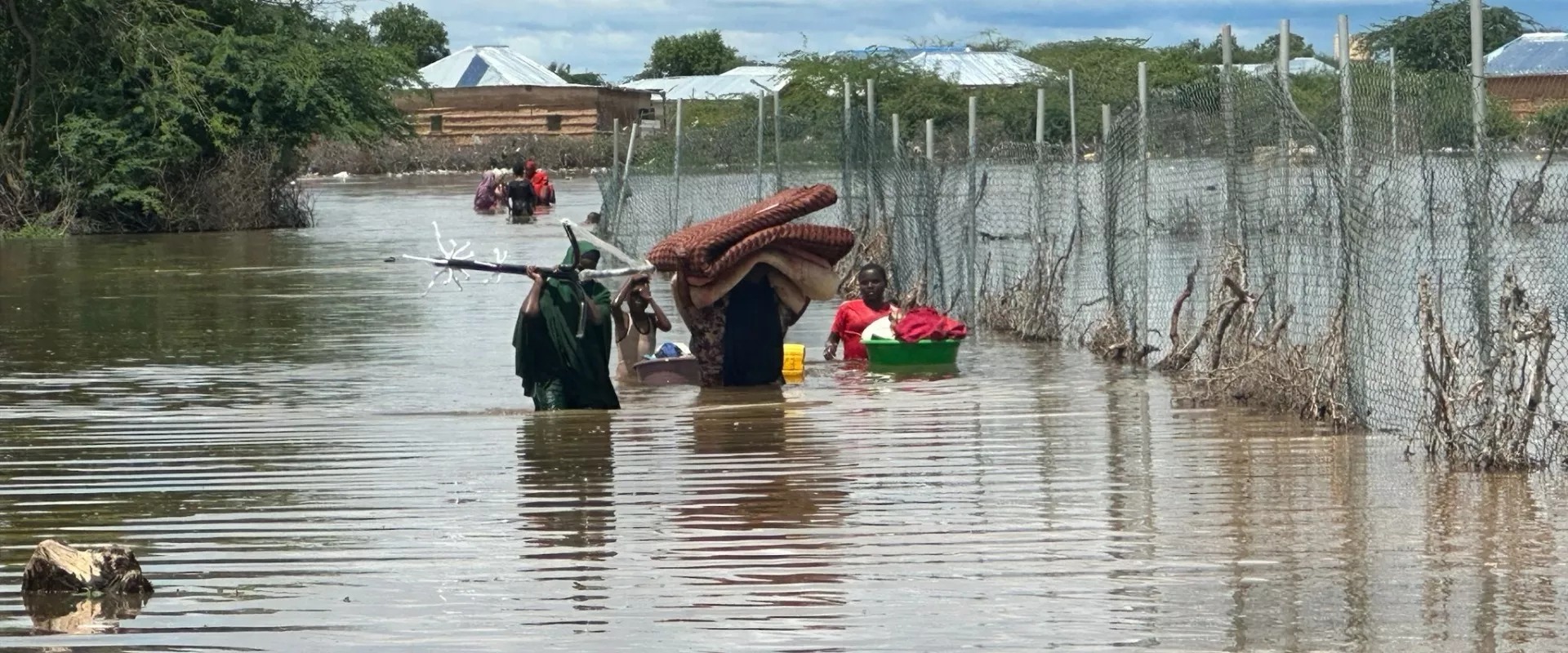
Torrential rains in Somalia have caused the country’s worst flooding in decades, resulting in 29 deaths, impacting more than 1.1 million people, and displacing more than 334,000 from their homes. The heavy rains, which started in early October, have caused significant damage to crops, roads, homes, and other infrastructure.
Families in Somalia, who recently suffered through a prolonged and severe drought, already had limited access to food, income, and other resources to survive before the floods. Now, the floods have made health services, schools, and markets difficult to reach. Agricultural lands that had dried out in years without rain washed away easily in the deluge. People have nothing left for themselves and their loved ones.
Even with repeated warnings from government agencies and humanitarian organizations, the heavy rains and extensive flooding caused severe damage and loss of life in several districts, with major towns in the southwest – Baidoa, Bardere, Luuq, and Galkacyo – among the hardest hit.
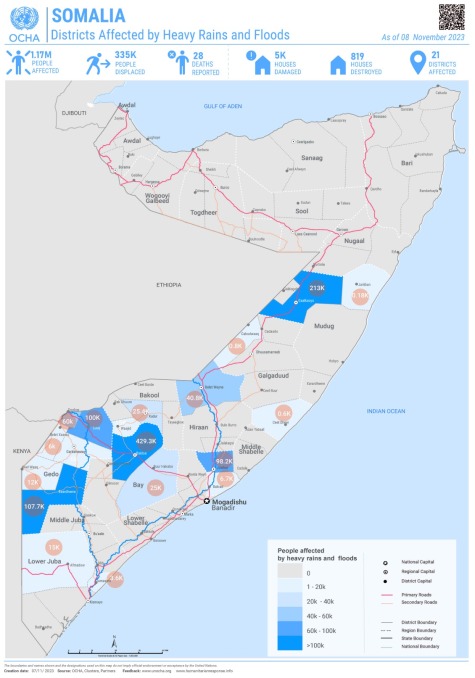
In Somalia’s region of Gedo, the entire town of Luuq has been nearly submerged, prompting humanitarian organizations and government agencies to deploy boats for lifesaving rescues and evacuations. In another major town, Baidoa, four people died on their first day of the heavy rains and the entire town has shut down businesses and other activities.
Somalia’s early warning systems alerted humanitarian organizations of El Nino and its potential impacts, and this helped our teams to prepare sooner and minimize loss of life. In September, Action Against Hunger and our partners preposiitoned supplies in hard-to-reach communities. Now, we are working together to rapidly respond to help families impacted by the floods.
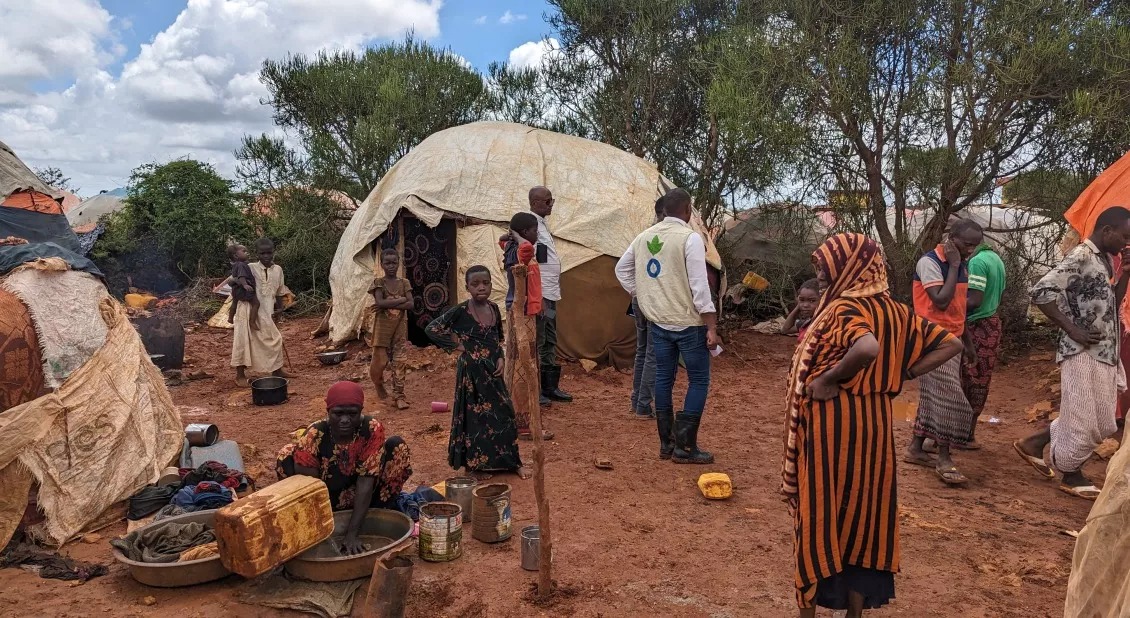
In Baidoa, Khadijo Ali Mohamed, a 28-year-old mother of four living in Gofgalol displacement camp, lost all of her belongings including food, mattresses, and kitchen tools. Compounding this crisis, her husband fell ill in the middle of the night.
“The fever was not subsiding and we had no way to take him to the hospital at that hour of the night. Even now, we do not have food,” said Khadijo Mohamed.
She and other residents of the displacement camp have been forced to flee to other areas of the town. The rains kept falling, even after they washed away homes, vehicles, and – tragically – people.
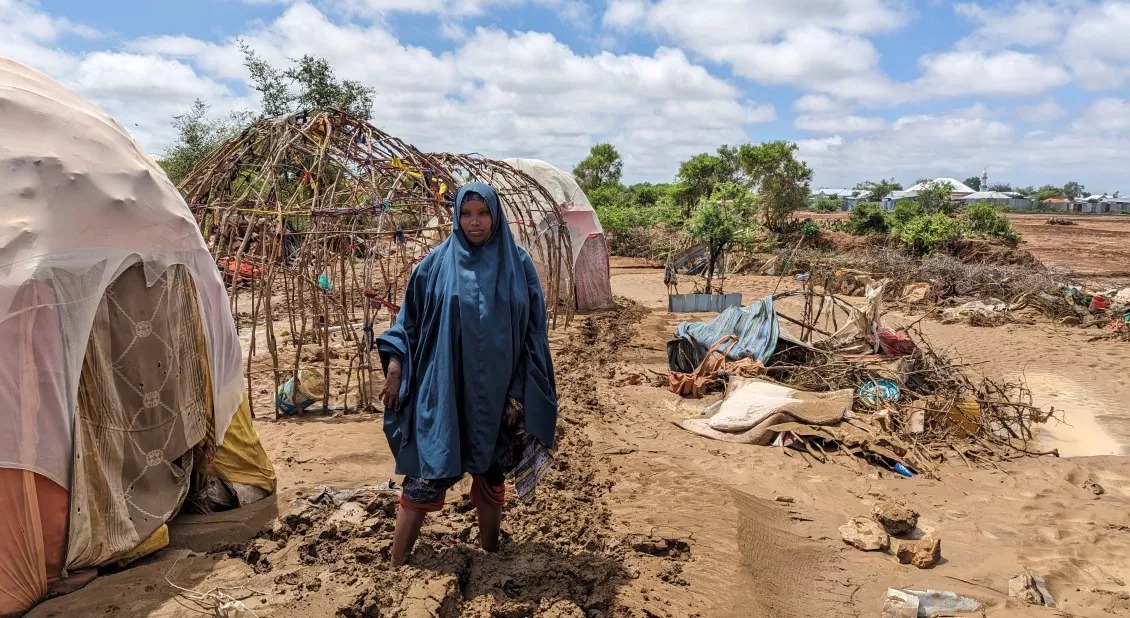
The cries of children were drowned out by the continuous sound of rain on the morning of October 6, when Action Against Hunger’s team arrived at the camps. They encounter only a few families, including Khadijo. She returned to salvage sticks and tattered cloth remnants from her damaged temporary shelter, intending to use them to build a new home to protect her family from the cold.
Mukhtar Mohamed, a camp leader in Gofgalool, spoke with Action Against Hunger’s teams, who have been working to rescue people and assess damages. According to him, the camp was home to more than 300 displaced people including pregnant women, children, and the elderly.
“No one slept in this camp tonight. The lucky ones were standing in their homes that were half filled with water, while some had no tents to protect them from the rains,” he said.
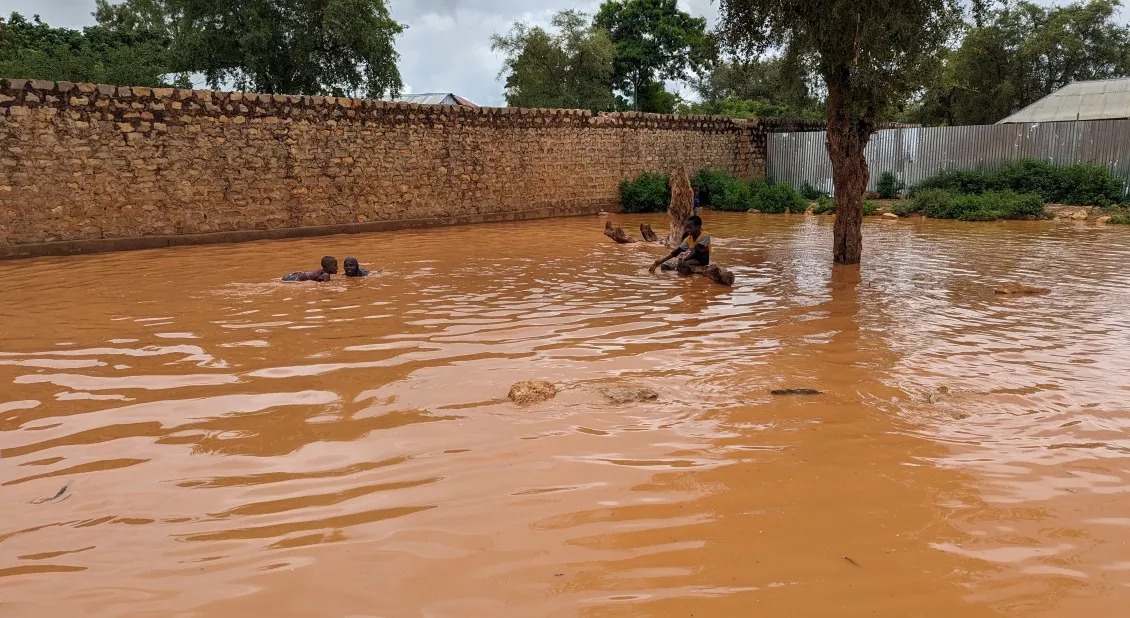
Vulnerable displaced families are exposed to precarious circumstances, as they relocate to find higher ground – areas that may be dry, but where clean water is scarce and sanitation conditions are inadequate. Baidoa, in particular, is an area prone to waterborne diseases such as acute watery diarrhea. The floods aggravate this already challenging situation.
Action Against Hunger Emergency Officer, Ibrahim Abdirahman, warns that contaminated water poses a significant threat to public health, especially when it rains.
“Waste washed from all over the town makes into wells, and this increases chances of infection,” explains Abdirahman, who also responded to the cholera emergency last year in Baidoa.
Mosquitoes also will find breeding grounds and malaria cases increase when it rains, too, impacting vulnerable families and children under five years old.
As part of our emergency response, Action Against Hunger’s team has begun to decontaminate water points, provide water treatment tablets, distribute hygiene supplies, and educate people on the importance of good hygiene practices to prevent disease outbreaks in the communities we serve.
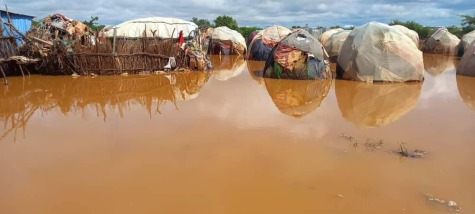
Food prices soared in the first week of the rains. The main road from Mogadishu was washed out by the floods, and many vehicles are reportedly stuck in the road. As a result, many food supplies are not making it to the flooded towns. Action Against Hunger’s Food Security and Livelihoods team confirms that common foods like rice, oil, sugar, and flour have increased by 35%, and vegetable prices are also on the rise.
The soaring costs of goods is likely to exacerbate food insecurity across Somalia, a country that has been experiencing climate change-induced droughts that has already pushed millions of people into hunger. El Nino, the recurring weather phenomenon, is one of the reasons why this year’s rains are so heavy.
According to the United Nations Office for the Coordination of Humanitarian Affairs (OCHA), the upcoming days are expected to bring even more rain to communities across Somalia. The weather forecast through November 15 predicts that very heavy to extremely heavy rainfall in southern Somalia, along with wetter than usual conditions in other regions of the country.
Action Against Hunger’s health teams have mobilized to visit communities and provide much-needed assistance. In addition, we are providing emergency cash assistance to support the most vulnerable families, enabling them to buy food, medicine, and other essential supplies. Our teams will also construct emergency latrines in the coming weeks and months in displacement camps to improve sanitation and reduce the risk of disease outbreaks.
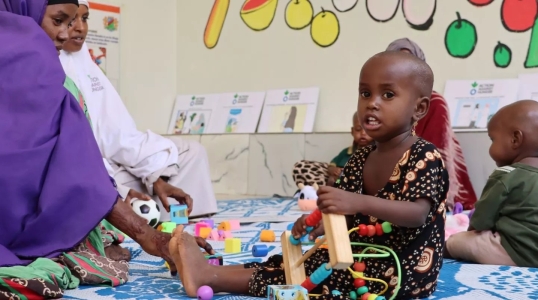
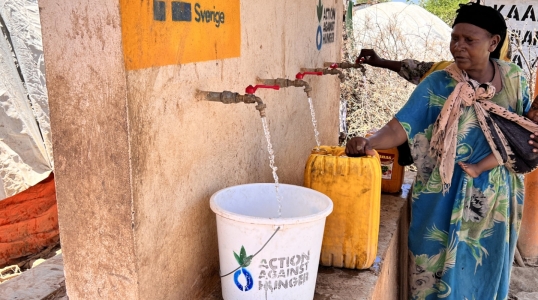
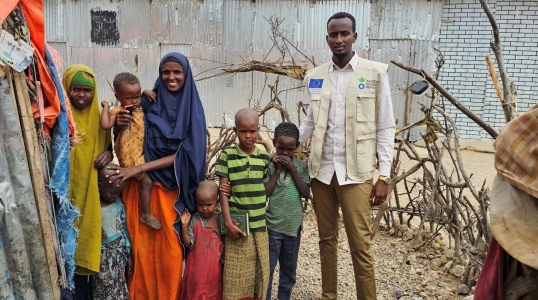
Join our community of supporters passionate about ending world hunger.